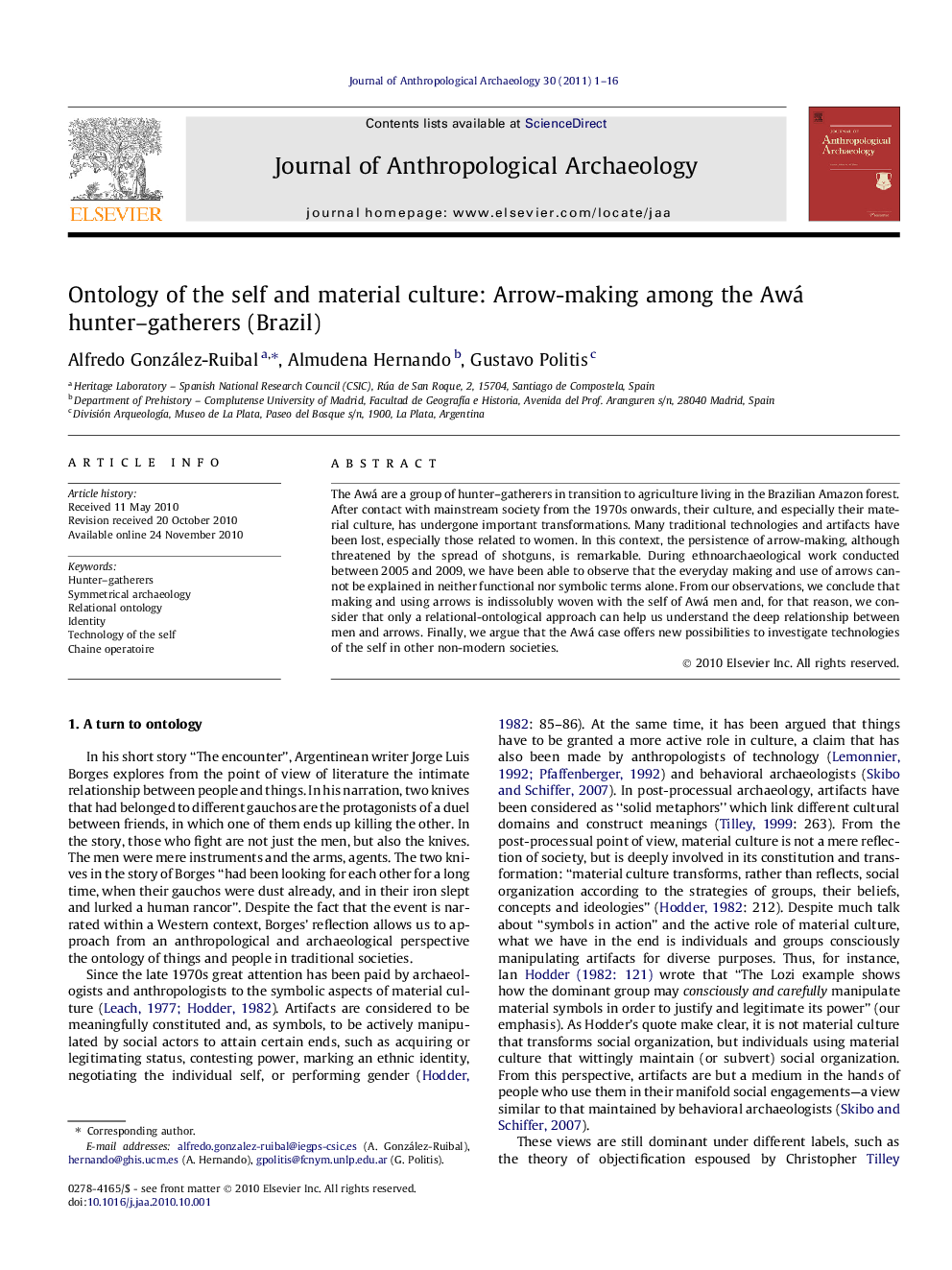| Article ID | Journal | Published Year | Pages | File Type |
|---|---|---|---|---|
| 1035054 | Journal of Anthropological Archaeology | 2011 | 16 Pages |
The Awá are a group of hunter–gatherers in transition to agriculture living in the Brazilian Amazon forest. After contact with mainstream society from the 1970s onwards, their culture, and especially their material culture, has undergone important transformations. Many traditional technologies and artifacts have been lost, especially those related to women. In this context, the persistence of arrow-making, although threatened by the spread of shotguns, is remarkable. During ethnoarchaeological work conducted between 2005 and 2009, we have been able to observe that the everyday making and use of arrows cannot be explained in neither functional nor symbolic terms alone. From our observations, we conclude that making and using arrows is indissolubly woven with the self of Awá men and, for that reason, we consider that only a relational-ontological approach can help us understand the deep relationship between men and arrows. Finally, we argue that the Awá case offers new possibilities to investigate technologies of the self in other non-modern societies.
Graphical abstractFigure optionsDownload full-size imageDownload high-quality image (103 K)Download as PowerPoint slideResearch highlights► The crucial role of certain objects in any culture can be explained ontologically. ► Making and using arrows is an integral part of the self among the Awá hunters. ► In non-modern cultures things play the role of writing as a technology of the self. ► Only some categories of artifacts become truly technologies of the self. ► During crisis, the role of material technologies of the self is more obvious.
